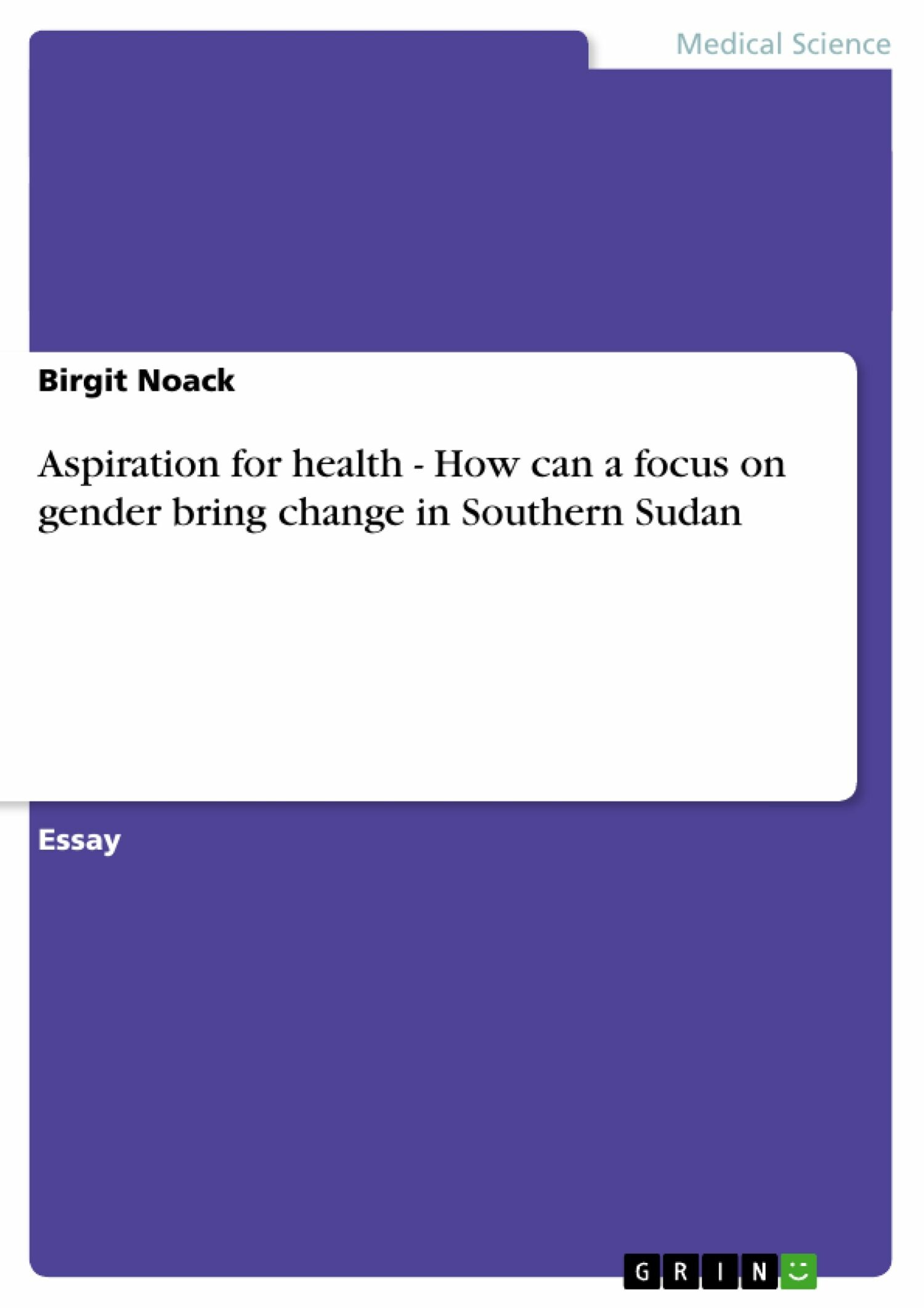Aspiration for health - How can a focus on gender bring change in Southern Sudan
How can a focus on gender bring change in Southern Sudan
| Auflage | 1. Auflage, 2004 |
| Verlag | GRIN Verlag |
| ISBN | 9783638256759 |
Sofort zum Download (Download: PDF, EPUB)
Produktbeschreibung
Essay from the year 2003 in the subject Health - Miscellaneous, grade: A (1,0), University of London (Institute of Education), course: Basisgesundheitswesen in Entwicklungslaendern, language: English, abstract: [...] Concurrently, the profound gender inequity of the world's resource distribution, a key determinant of health, contiues: 'Women are half the world's population, yet they do two-thirds of the world's work, earn one-tenth of the world's income, and own less than one-hundredth of the world's property (UN, 1985:337)' This is true particularly in low- income countries, where the majority of girls and women are deprived of adequate health care, education and decision-making power, leading to illiteracy, malnutrition, abuse, chronic illness and premature death (The World Bank, 1994; UN, 2000). Current news headlines echo this problem: African women are 175 times more likely to die in childbirth and pregnancy than Westerners are (BBC news, 20 October 2003). Sudan, a country marked by extreme poverty due to chronic civil war, compounded by natural disasters, also reflects these gender inequities. The few statistics available show a lower primary education enrolment ratio for girls (41.9); a high maternal mortality ratio of 1500 (per 100 000 live births) and only 10% of parliament seats are taken up by women (UN, 2003). 6 The denial of women's equity and health rights has profound consequences upon the health, development and survival of children. Research across the developing world indicates that, after maternal death, more than 95% of infants died within one year, with a girl child having an even less chance of survival than a boy (The World Bank 1994; Winikoff, 1988). Clearly, girls and women need to be the focus of all PHC initiatives if public health is to be enhanced. Focussing upon women in order to improve health is not a recent notion, but has been promoted since the UN sponsored Women's Decade in 1976-85 (Moser, 1993). Thus, the question arises why only minor success appear to be noticeable, and how this conceptual framework can be applied into the context of a complex emergency like in Sudan. Therefore, this essay will firstly outline the evolution of a gender approach towards health and development, elucidating its underlying principles, objectives and achievements. It will briefly explicate the socio-economic and cultural context of a Dinka community in Southern Sudan through a 'gender lens' and critically reflect upon PHC programmes, with reference to the author's personal work experience.
